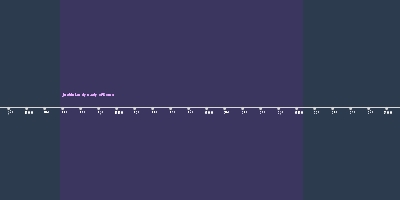9 apr 800 anni - Battle of Novae
Descrizione:
With his rear secured, Krum turned south, once again focusing on Dacia and Moesia in 799. The Bulgars built a makeshift fleet, and crossed in a massed force unlike anything the Romans had faced before. Twenty-five thousand tribesmen and allies were across the river, and they began ravaging the countryside.According to legend, Justinian organized a response to be led by his brother; however, as the Emperor overheard one of his courtiers expressed relief that it would be the more talented Theodosius leading the counterattack, rather than the Emperor himself in a discussing, he soon instead declared that he would crush the Bulgars personally, while Theodosius remained behind in the capital.
March 800 Justinian departed the capital with forty thousand men from across the Empire, and with the Imperial fleet sailing up the coast. The Bulgars by now were besieging Marcianopolis. The Emperor’s arrival however broke the siege, and in a swift action the drastically larger Roman force routed the eight thousand men Krum had given the task of taking the city.
The khan himself was in the West, besieging Nicopolis. When he got word of the Roman response, Krum sent offers for a truce. But Justinian was having none of it. He wanted to crush Krum, and put the whispers forever to rest that he was the inferior of his brother.
Krum’s army fled in the face of the Romans, retreating north back to the Danube. There Justinian planned to trap them and force a battle, where the Bulgars would have nowhere to retreat and could be destroyed.
Justinian planned to trap the Bulgars by using the Roman fleet to trap them south of the Danube, and destroy the boats the Bulgars had used to cross. But the Romans had hit a storm on their way north, and the fleet was scattered, many ships were sunk or severely damaged and been forced to turn back. Rather than two hundred ships the Emperor still had about twenty ships moving to meet him. Krum was able to leave a rearguard to block the Roman advance long enough to pull back across the river.
Justinian caught up with him, and settled into Novae to plan his next move. He sent messengers south ordering more ships sent, and Theodosius obeyed, setting about rounding up more ships and sending an answer back that they would be there by the end of the year. Justinian decided the twenty ships he had, plus the local ships used on the river, were enough and set the ships to ferrying his army north. Justinian personally led the initial crossing, and by the end of the day he had about fifteen thousand men in place north of the Danube. These men built a large camp for their fellow soldiers and settled in to wait for morning. But the camp was too large to post proper sentries around, and the Bulgars had worked out where the blind spots were as their scouts watched the site being built.
In the night Krum sent a force back across the river, snuck them into the Roman harbor, and burned every ship there. Simultaneously the Bulgars attacked the eastern wall of the camp, and overran it, killing hundreds of Roman soldiers and setting fire to vast quantities of stores and supplies. When dawn broke the Emperor found himself in a burned out camp with no way home. And with the entire Bulgar army right outside.
Several records said that the Emperor was in shock through the day, and tried desperately to think of a way out of his situation. Even if he could have found a boat the crossing was impossible, as the Bulgars had set their own boats into the river between the Roman camp and the far side.
The soldiers left in Novae could only watch in horror as the day drew on and the Bulgars advanced.
A vicious battle broke out, with no quarter given. The Bulgars once again overran the undermanned camp wall, and through the defenses by noon. The Emperor’s tent was captured an hour later, and soon Romans were throwing themselves into the river, trying to swim across to escape the Bulgar attack. They all either drowned or were shot by Bulgar archers.
Of the fifteen thousand men Justinian had led across the river none ever returned. The Emperor himself is said to have been dragged before Krum in chains and been forced to supplicate himself before the khan. If so, it didn’t save him, and Krum is said to have turned his skull into a chalice after sacrificing the representative of God to his own pagan gods.
Aggiunto al nastro di tempo:
Data:
9 apr 800 anni
Adesso
~ 1226 years ago
